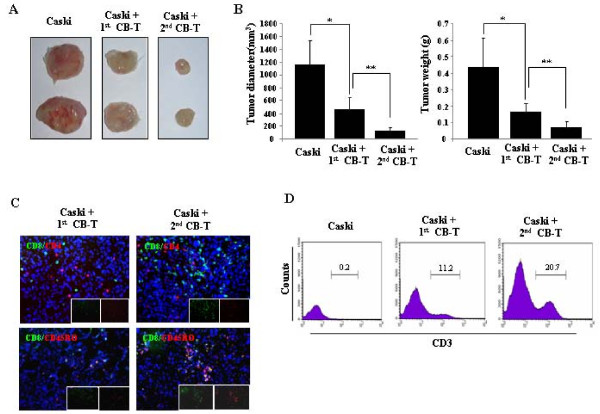Figure 5.
Adoptive T-cell transplantation enhances antitumor activity in vivo. NOD/SCID mice with prior cord blood T cell (CB-T) reconstitution by neonatal injections were given either no inoculation or an inoculation with Caski cells. T cells were then purified from the tumor non-adopted (1st CB-T) or pre-adopted (2nd CB-T) splenocytes of these mice and injected at a dose of 1 × 106 T cells into tumors in NOD/SCID mice that had Caski cell injections 4 weeks earlier. A, tumors from each mouse at 4 weeks after the injection of T cells. B, compared to non-adoptive T cells, adoptive T cells induced a dramatic inhibition of tumor growth (* P < 0.05, ** P <0.01). C, immunostaining of T cells infiltrated tumor tissue treated with 1st CB-T cells in tumor mice (left panels) or 2nd adoptive CB-T cells (right panels) in Caski tumor mice. Sections were stained for CD8 (green) and CD4 (red) (upper panels), or CD8 (green) and CD45RO (red)(bottom panels). × 200. Hoechst dye was used for counterstaining of cell nuclei. D, tumor cells from control mice (with Caski tumors but no T cell injection), 1st CB-T mice, and 2nd CB-T mice were investigated with CD3 staining using flow cytometry.

